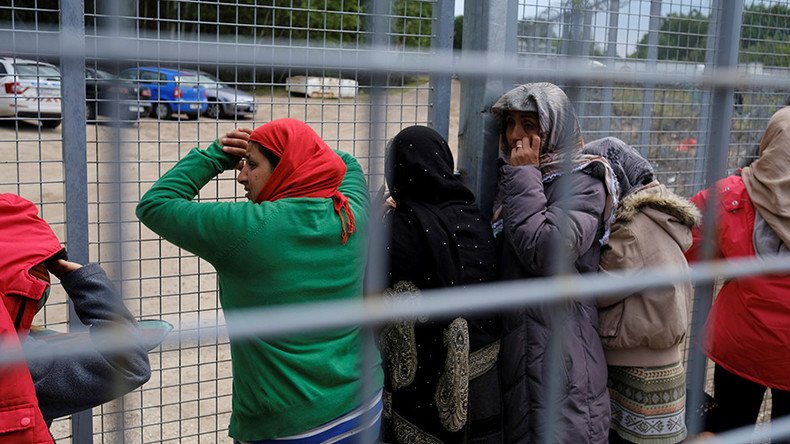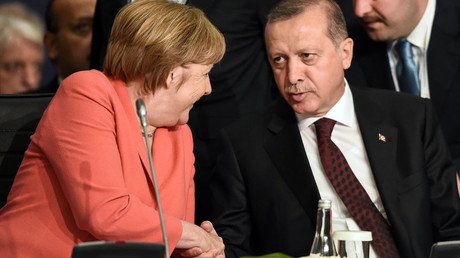EU warns Turkey 'threats won't work' in migrant deal negotiations

Turkish “threats” against the EU will not work, the president of the European Commission has said, stressing that Ankara must fulfill its side of a landmark deal aimed at curbing the flow of migrants into Europe.
"We do expect that Turkey will stick to its commitments – and threats are not the best diplomatic instrument you can use," Jean-Claude Juncker told reporters in Ise-Shima, Japan, where he is attending the G7 summit.
He went on to state that threats will “produce no effect whatsoever,” AFP reported.
The comments come after Turkish President Recep Tayyip Erdogan said on Tuesday that Ankara would block laws related to the migrant deal if the EU did not grant visa-free travel to its citizens.
"If that [the visa exemption] is not what will happen...no decision and no law in the framework of the readmission agreement will come out of the parliament of the Turkish Republic," Erdogan said at the close of the World Humanitarian Summit in Istanbul.
“Our Foreign Ministry, our EU Affairs Ministry will have discussions with the Europeans. If there is a result then great. If not, then I'm sorry,” he added.
Erdogan also stressed that Ankara has alternatives to the EU if the deal cannot be reached, and complained about the wariness of Brussels to hand over a promised €3 billion (US$3.3 billion), followed by another €3 billion to help Syrian refugees.
The deal, which continues to be the topic of tense negotiations between Brussels and Ankara, would require Turkey to take back all illegal migrants reaching Greece from its shores. In return, the EU would take in thousands of Syrian refugees directly from Turkey.
The EU has also agreed to grant Turkish citizens the ability to travel to the bloc visa-free – if a list of 72 conditions are met by Ankara. However, a key sticking point of those conditions is Turkey's strict anti-terror laws, which Europe says must be loosened for the agreement to go ahead.
Critics of Erdogan have accused Ankara of using the stringent laws as an excuse to carry out a military crackdown against Kurds in the country's southeast. However, Ankara says the laws cannot be changed due to the threat posed by Islamic State (IS, formerly ISIS/ISIL), other terrorists, and Kurdish militants.
Despite the less-than-cordial exchanges between the EU and Turkey, German Chancellor Angela Merkel said on Wednesday that she is “not concerned” about the fate of the deal, but that “we just need more time,” Reuters reported. She has, however, admitted that the end-of-June target deadline for the deal is unlikely to be met.
The EU is eager to close the deal with Ankara, in an effort to ease the flow of migrants and refugees crossing into Europe. Over a million asylum seekers arrived to the continent in 2015, most of whom hail from Syria, where a civil war has killed 250,000 people and displaced more than 12 million since 2011, according to UN figures.













